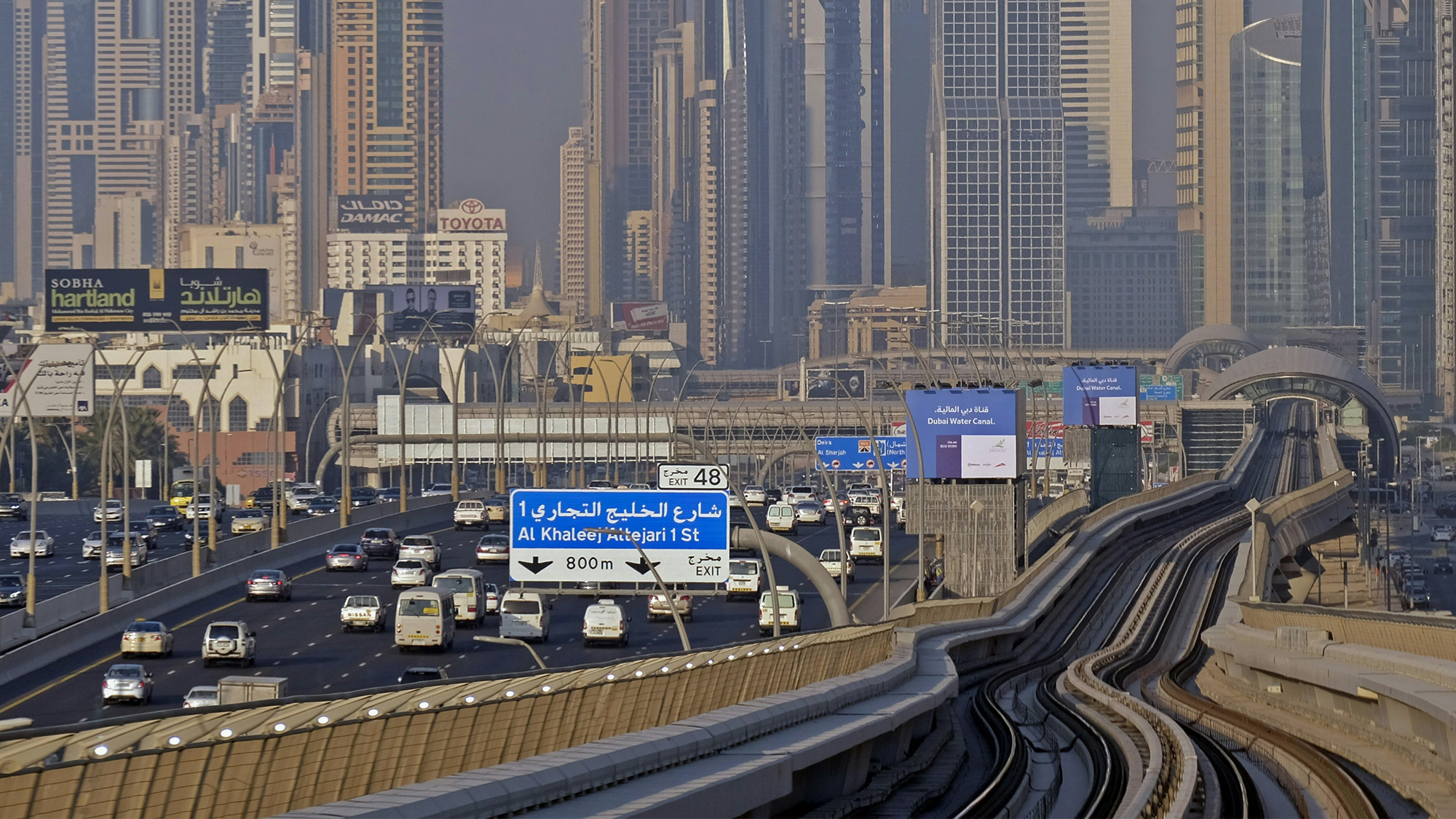



Dubai has an efficient and structured transportation system, which reflects the government’s solid efforts to improve mobility, connectivity, and sustainability. In pursuit of this objective, it ceaselessly conceptualises, develops, and carves the way for key transformations. The Roads and Transport Authority (RTA) has been playing a key role in realising this vision.
As part of our discussion of Dubai’s transportation sector, we look at several key developments and investments that complement its commitment to enhancing mobility and connectivity for residents and visitors alike. These landmark developments include increased revenue from the Salik toll system, the expansion of Dubai Taxi Company’s (DTC) vehicle count, and the introduction of new ride-hailing services in the city.
Dubai boasts a lively transportation network, with locals, residents, and tourists utilising various modes of transit. Central to managing this movement is the Salik toll system, operated by Salik Company PJSC.
In a remarkable feat, Dubai’s exclusive toll operator has recently announced an impressive 2023 performance, hitting a record-breaking revenue of AED 2.10 billion. Salik also reported 461.4 million revenue-generating trips last year. This further underlines its vital function in Dubai’s transportation network.
Mattar Al Tayer, the Chairman of the Board, highlighted the strategic undertakings that drove Salik’s success. He emphasised, “Salik has reported another strong year, with record top-line performance supported by continued strength in revenue-generating trips. The achieved results for 2023 are a testament to our strategic vision and commitment to delivering long-term value to our shareholders, as well as to the positive macroeconomic environment in the UAE. GDP growth, coupled with strong tourism inflow, is evidence that the Government of Dubai’s initiatives to expand the economy, particularly focusing on population growth and maintaining the Emirate’s attractiveness to visitors, are bearing fruit.”
The company’s new business strategy intends to diversify revenue streams while maintaining its position as a global leader in tolling operations.
In line with Dubai’s overarching focus on advancing its transportation industry, great progress has been made in expanding and improving taxi services.
The government-owned Dubai Taxi Company (DTC) has recently increased its fleet with the acquisition of 94 new licence plates at the recent Roads and Transport Authority (RTA) auction, expanding the total number of cabs in service to 445 by 2024.
DTC sees this strategic move as a way to push the company’s market share to 46% and thereafter secure its spot as Dubai’s premier transportation operator. The expansion showcases the company’s strong financial health and ability to maintain smooth operations and acquisitions.
The company is also doubling its fleet with the addition of 350 new environmentally friendly taxis.
In the context of Dubai’s transport sector, it is essential to emphasise the innovative and sustainable developments that are propelling industry advancement.
Dubai continues to spearhead innovative transportation solutions, as exemplified by the introduction of Drife. It is by far the first decentralised ride-hailing platform in the country.
The company follows an auction-based pricing model that allows riders to choose from multiple fee options offered by different drivers. According to a report via the Khaleej Times, this ensures competitive pricing and higher pay for motorists. Essentially, each ride sets a minimum fee, which is often 30% more than conventional rates. Thus, drivers are allowed to give discounts, keep standard fares, or request a premium.
Moreover, Dubai commuters have the option to use a specific digital token approved by Dubai’s Virtual Assets Regulatory Authority to ride Drife. Nevertheless, during the initial phase, the primary payment options will continue to be traditional methods such as cash, credit, and debit cards.
Furthermore, Careem’s initiative to introduce electric delivery bikes complements Dubai’s commitment to lowering carbon emissions and fostering ecologically friendly transportation options. By allowing the switch to electric bikes, Careem is able to minimise operational costs for delivery riders while contributing to the city’s net-zero objectives.
As a welcome, albeit indirect, result, Dubai has secured the 28th position globally in urban mobility readiness in 2023. According to the Middle East Economy, Dubai is ranked between Atlanta and Melbourne on the index.
It’s worth mentioning that many Dubai-based enterprises are also spearheading ingenious inventions, including the creation of digital licence plates. This reinvention of traditional plates completely integrates technology, making them a revolutionary solution to the previous model.
Dubai’s transportation sector continues to evolve, centred on innovation, efficiency, and sustainability. As the city embraces new technologies and initiatives, it reinforces its position as a global leader in transportation infrastructure. Without question, this sector sets the standard for cities around the world.
Don’t forget to share this post!
We use cookies to enhance your experience on our website. If you continue using this website, we assume that you agree with these. Learn more.


